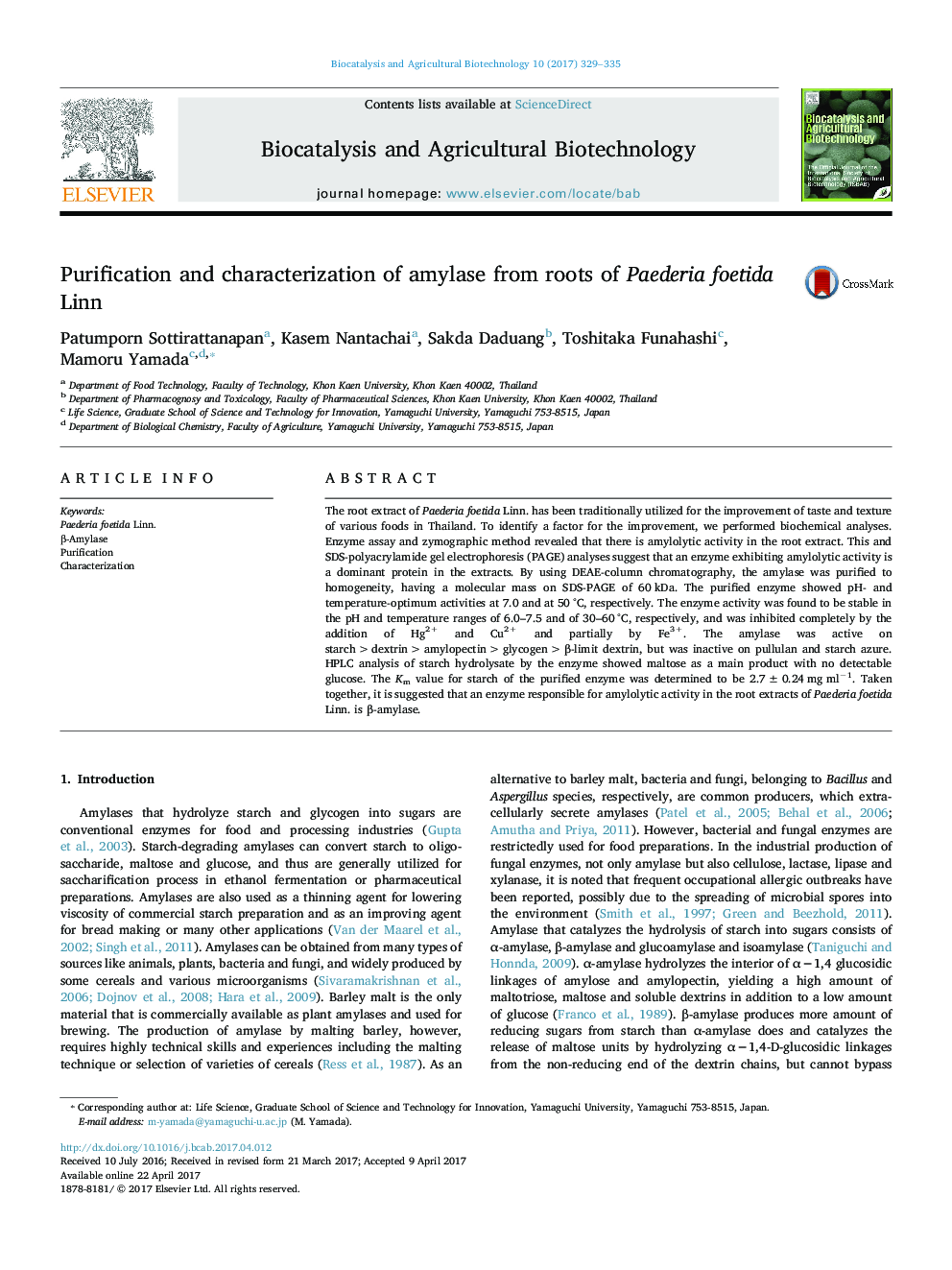| Article ID | Journal | Published Year | Pages | File Type |
|---|---|---|---|---|
| 5520474 | Biocatalysis and Agricultural Biotechnology | 2017 | 7 Pages |
The root extract of Paederia foetida Linn. has been traditionally utilized for the improvement of taste and texture of various foods in Thailand. To identify a factor for the improvement, we performed biochemical analyses. Enzyme assay and zymographic method revealed that there is amylolytic activity in the root extract. This and SDS-polyacrylamide gel electrophoresis (PAGE) analyses suggest that an enzyme exhibiting amylolytic activity is a dominant protein in the extracts. By using DEAE-column chromatography, the amylase was purified to homogeneity, having a molecular mass on SDS-PAGE of 60 kDa. The purified enzyme showed pH- and temperature-optimum activities at 7.0 and at 50 °C, respectively. The enzyme activity was found to be stable in the pH and temperature ranges of 6.0-7.5 and of 30-60 °C, respectively, and was inhibited completely by the addition of Hg2+ and Cu2+ and partially by Fe3+. The amylase was active on starch>dextrin>amylopectin>glycogen>β-limit dextrin, but was inactive on pullulan and starch azure. HPLC analysis of starch hydrolysate by the enzyme showed maltose as a main product with no detectable glucose. The Km value for starch of the purified enzyme was determined to be 2.7±0.24 mg mlâ1. Taken together, it is suggested that an enzyme responsible for amylolytic activity in the root extracts of Paederia foetida Linn. is β-amylase.
